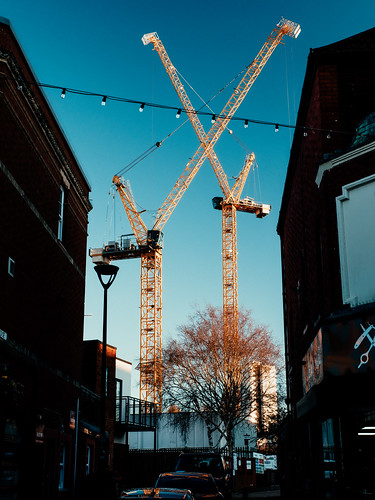I sometimes employ an undergraduate to observe my teaching, and criticize what I do. I’ve learned a lot from them over the years, but I really employ them, these days, to hold me accountable to the standards I set myself and to tell me what is happening in the room (this is especially valuable in large classes) more than with the expectation that I’ll learn something brand new.
Anyway, last week my new observer, Allyson, solved what has been a longstanding problem for me. In my large classes students get antsy in the last ten minutes, and start, slowly, and discreetly, to put their stuff away and get ready to go. Each individual student is not disruptive, but having most of them doing this over a 7 minute period is very distracting (for them and for me). Its especially bad in winter because they have lots of clothes to put on. [1]
And I am not blaming them for this. My campus is large, and there is a 15 minute gap between classes. Unless they are ready to go the second class ends many of them will be late for the next class.
Allyson pointed out the antsiness, and suggested the following: 7 minutes from the end of class tell them that they are not leaving till the end of the class, but that I am giving them one minute to get their stuff together.
So, I did it on Monday. It was magical, in something like the way that Think Pair Share is magical: one minute of total disruption, followed by 6 minutes of complete focus. Wednesday was the same. What I really noticed on Wednesday was the different noise at 3.45; I dismissed them and the class went from silence to all the noise happening at once, briefly, as they departed much more quickly than I’ve ever seen.
Obviously, what happens in that last 6 minutes is different from before. They can’t take notes, so the 6 minutes has to be stuff that they don’t feel the need to take notes on: last week it was Q&A (and the questions were great), but I can imagine setting up a 5 minute video, or a brief Pair Share about what they have learned in that day. I haven’t read about this before, and when I asked Allyson whether she’d seen this work in other classes, she said no, she just thought it up as a possible solution to a problem she’s seen in all her classes (and almost all of her classes have been large — she’s an Industrial Engineering major). I’m not the least surprised that she is imaginative, but still it was a stunning success. If you try it, or have seen it work already, I’m curious what your experience is/has been.
[1] This is hardly ever a problem in my smaller classes. Indeed in the class Allyson is actually taking from me this semester, which is the last class of the day, it is clear that I could keep them back for an hour and half of them would be happy. Its also not a problem even in the large class if I am in the Tues/Thurs 11-12.15 slot, because nobody who is in a class in that slot has another class till 1. But I try to teach smaller classes in that slot because I know that students in smaller classes are much more likely to hang around chatting for a long time after class, and that is the one slot in which I can guarantee that will be possible because nobody else will need the room till 1.






